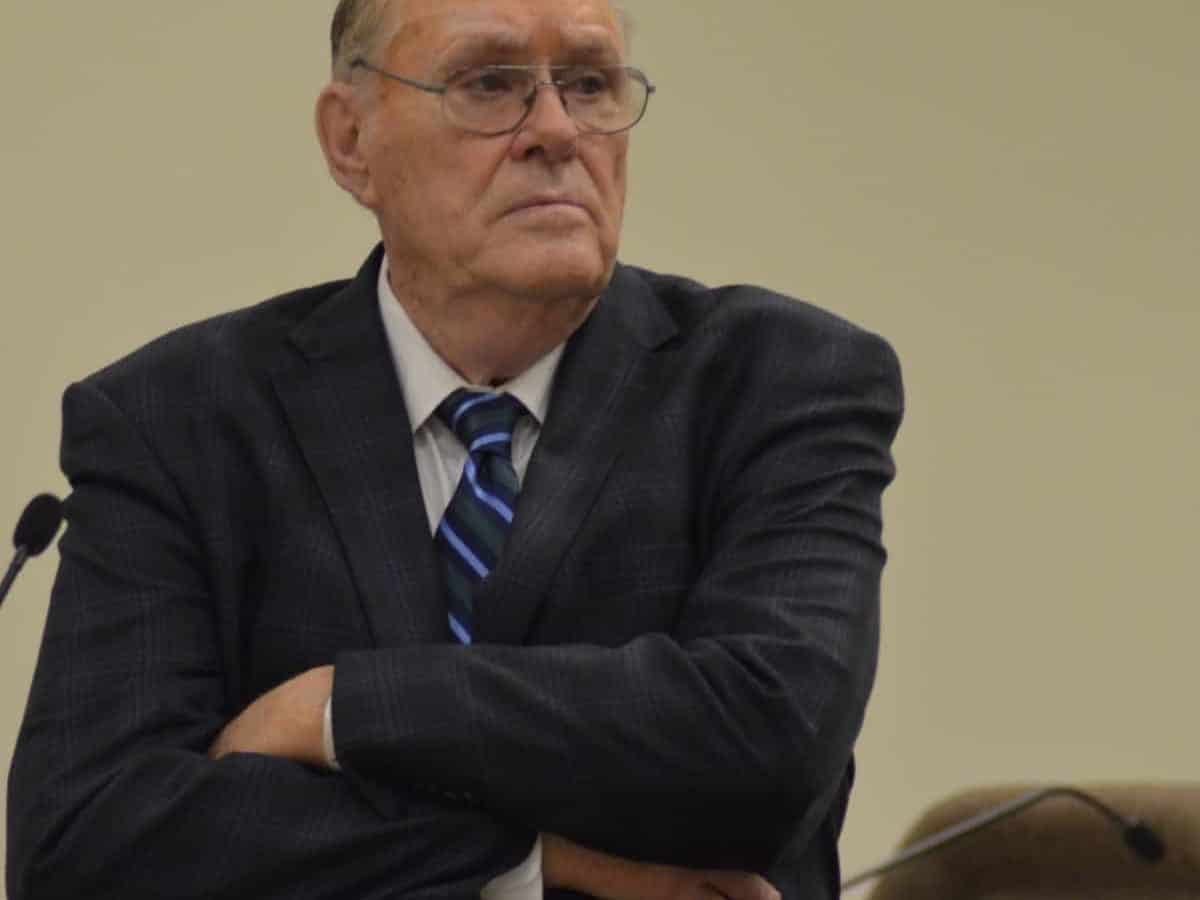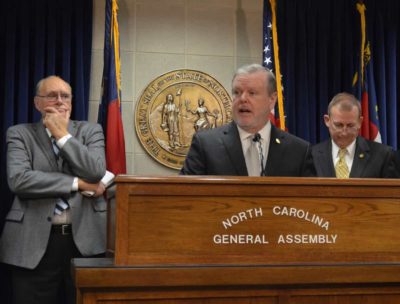

The full Senate appropriations committee gave a favorable vote to its two-year budget plan, which increases education spending by $1.3 billion and gives teachers an average 3.5% pay raise over two years.
Under the Senate budget, every teacher would get a raise, and veteran teachers would get a bonus. Teachers with 25 or more years of experience would get a $1,000 bonus and teachers with 15-24 years of experience would get a $500 bonus.
Gov. Roy Cooper’s spokesperson criticized the budget after its release yesterday. Today, Mark Jewell, president of the North Carolina Association of Educators, added his thoughts.
“A budget that gives half-percent pay raises to teachers, and continues to deny our lowest-paid staff $15 an hour, cannot be good for students or educators in North Carolina,” Jewell said in a press release. “Not only does this budget fail to expand Medicaid or restore master’s pay to highly qualified teachers, it completely ignores the needs of retirees who have dedicated their entire career to public school students. This budget fails at nearly every level.”
Later this afternoon, Senate Democratic Leader Dan Blue, D-Wake, added his take on the budget in a news release.
“The Senate budget underfunds infrastructure, water quality, public education, economic development and health care. Republicans are proposing quick fixes for chronic problems in North Carolina. Most importantly, the budget ignores the growing support for Medicaid expansion in our state,” Blue said.
The Senate spending plan contrasts with the House proposal, which gives an average 4.6% pay increase for teachers in the first year of the biennium and an average 6.3% increase over two years. That first year number is misleading, however, because the House postponed the start of its salary increases until mid-year, making the actual first year salary increase lower.
Under the Senate plan, the average teacher pay would increase to $54,500 over the biennium. Under the House, it would go up to $55,600. Right now, the average salary for teachers is $53,975.
The Senate proposes an average 6.2% increase in pay for principals, in contrast to the House’s average 10% pay increase. However, the 10% pay increase for principals under the House plan would also be less than that in the first year because of the mid-year start date to the raises. Both spending plans extend a hold harmless for principals that made more under previous principal salary schedules.
Senate lawmakers leave the principal pay schedule mostly as is, though they have added an incentive program where principals can get a $30,000 salary supplement if they work at low-performing schools in the bottom 5% of the state. The House principal pay proposal changes the principal salary schedule, aligning it with the teacher salary schedule. Under the House plan, the principal’s base pay will align with a teacher of similar experience plus 25%.
The Senate also had a $700 million surplus to work with that the House was not aware of. However, Senate lawmakers said the bulk of the money from the surplus will go into the rainy day fund.
“I think we all saw how important it was to have those dollars when the last hurricanes came through,” said Senate appropriations committee senior chair Harry Brown, R-Onslow, during the Senate appropriations meeting.
The Senate budget includes funding to hire 100 more school psychologists around the state, which would bring the total number of these positions to around 700 with the aim of making sure every district in the state has at least one.
During the appropriations committee Senate Democratic Whip Jay Chaudhuri, D-Wake, asked if it was possible to include more flexibility in that funding. The money for the school psychologists can only be used to either hire that position or contract out the position. Chaudhuri asked if the provision could be changed so that districts that perhaps needed other positions more — such as school nurses — could use the money for something else.
Brown said he didn’t think that was a good idea.
“We’ve heard over and over the shortage in this area,” he said. “So being able to use these slots for other things, I don’t think fixes the problem.”
The Senate appropriations committee was the first time Senate lawmakers had an opportunity to offer amendments. Presentations of the budget details began at 8:30 and the deadline for amendments was 10 a.m. While the education portions of the budget were presented before the deadline, many areas of the budget hadn’t been presented by the time the deadline had passed. The amendments didn’t make any major changes to the education portions of the budget.
Read our previous budget article from Tuesday for more details from the Senate’s spending plan.
Other notable items in the Senate budget plan not mentioned in our article yesterday:
- Funding to pay for the full cost of meals for students who qualify for reduced-price lunches and participate in the National School Lunch Program
- Expands number of schools in the Teaching Fellows program from three to eight (the House budget also does this)
- Makes advanced teaching roles pilot program a permanent program
- Eliminates ability of school districts to sue their county commissioners for inadequate school funding
- Does not restore master’s pay for teachers (the House budget does)
The full Senate will take up the budget tomorrow.


